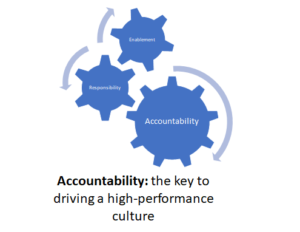 Last night while out running errands with my husband he was explaining how empathetic the leadership was at a vendor organization he has been working with. This made me think about how important empathy is as a leader. My last blog spoke to the need for accountability in solution delivery and last night’s discussion made me think about the importance of balancing accountability with empathy. Some leaders can empathize intuitively, and some leaders must work at how to display empathy. I have compiled some key components of empathy that I hope will help you be more aware of as you grow your leadership skills.
Last night while out running errands with my husband he was explaining how empathetic the leadership was at a vendor organization he has been working with. This made me think about how important empathy is as a leader. My last blog spoke to the need for accountability in solution delivery and last night’s discussion made me think about the importance of balancing accountability with empathy. Some leaders can empathize intuitively, and some leaders must work at how to display empathy. I have compiled some key components of empathy that I hope will help you be more aware of as you grow your leadership skills.
UndErstanding – Do you understand how your team members are perceiving their work assignments? As a leader it is important to take the time to understand how your team members are receiving their assignments and ensure that roadblocks to achieving their assignments are removed. This includes training as well as any distractions they may be facing.
CoMpassion – Your team need to be treated with compassion as they face hurdles both at work as well as in their personal lives. Some team members easily share when they are being faced with situations that are overwhelming but there are also others that will suffer in silence. As a leader it is important to be aware of any changes you may see in behavior and gently probe into the cause while showing compassionate understanding.
ResPonsiveness – As a leader you should never ignore the signs of someone struggling. It is important to react quickly and positively when your team members are showing any sign of distress or discomfort. It is very easy to ignore the early signs because of your workload but they will be there.
Appreciation – Do you show appreciation for both the big wins and small wins of your team? Leaders need to remember that even a small task achieved deserves to be recognized even if only with a smile. It is human nature to want to feel like the effort we put into our work is appreciated by our team and our leadership. Please remember that even the small show of appreciation goes a long way in maintaining the health of your team members.
RecogniTion – This emotional area cannot be underestimated on maintaining a healthy team. You need to remember as a leader that not everyone appreciates public recognition, and some team members thrive on public recognition. It is important that you get to know how your team like to receive recognition in order to not demoralize those that shy away from public displays.
InsigHt – Having the ability to accurately and many times intuitively understand what motivates your team. Motivation comes in many different forms and as a leader having the insight into each team member and what drives them as well as what will demotivate is an essential characteristic for any leader to build in their career growth journey.
SYmpathy – Showing sympathy for other’s misfortunes is not an easy thing to do without coming off superficial, however it is a critical trait for a leader to show sympathy for any loss of your team members. The loss could be people, pets, and property to name a few to be aware of. Having active communications with your team individually will allow them the vehicle to open up about there personal struggles and will allow you an opportunity to show sympathy and any support they may need to get through the emotional journey they face.
In conclusion, a balance of accountability with empathy is an important concept for any manager or leader as they grow their career. Take the time to ensure your team are well cared for and you will reap many successful delivery results through a balance of ACCOUNTABILITY and EMPATHY!




